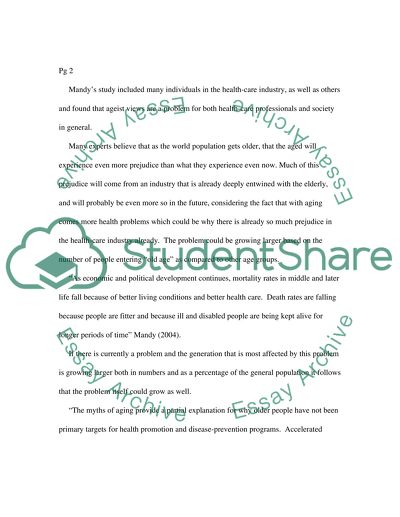Cite this document
(“Health Professionals and Ageism Assignment Example | Topics and Well Written Essays - 2500 words”, n.d.)
Retrieved from https://studentshare.org/health-sciences-medicine/1526048-health-professionals-and-ageism
Retrieved from https://studentshare.org/health-sciences-medicine/1526048-health-professionals-and-ageism
(Health Professionals and Ageism Assignment Example | Topics and Well Written Essays - 2500 Words)
https://studentshare.org/health-sciences-medicine/1526048-health-professionals-and-ageism.
https://studentshare.org/health-sciences-medicine/1526048-health-professionals-and-ageism.
“Health Professionals and Ageism Assignment Example | Topics and Well Written Essays - 2500 Words”, n.d. https://studentshare.org/health-sciences-medicine/1526048-health-professionals-and-ageism.


